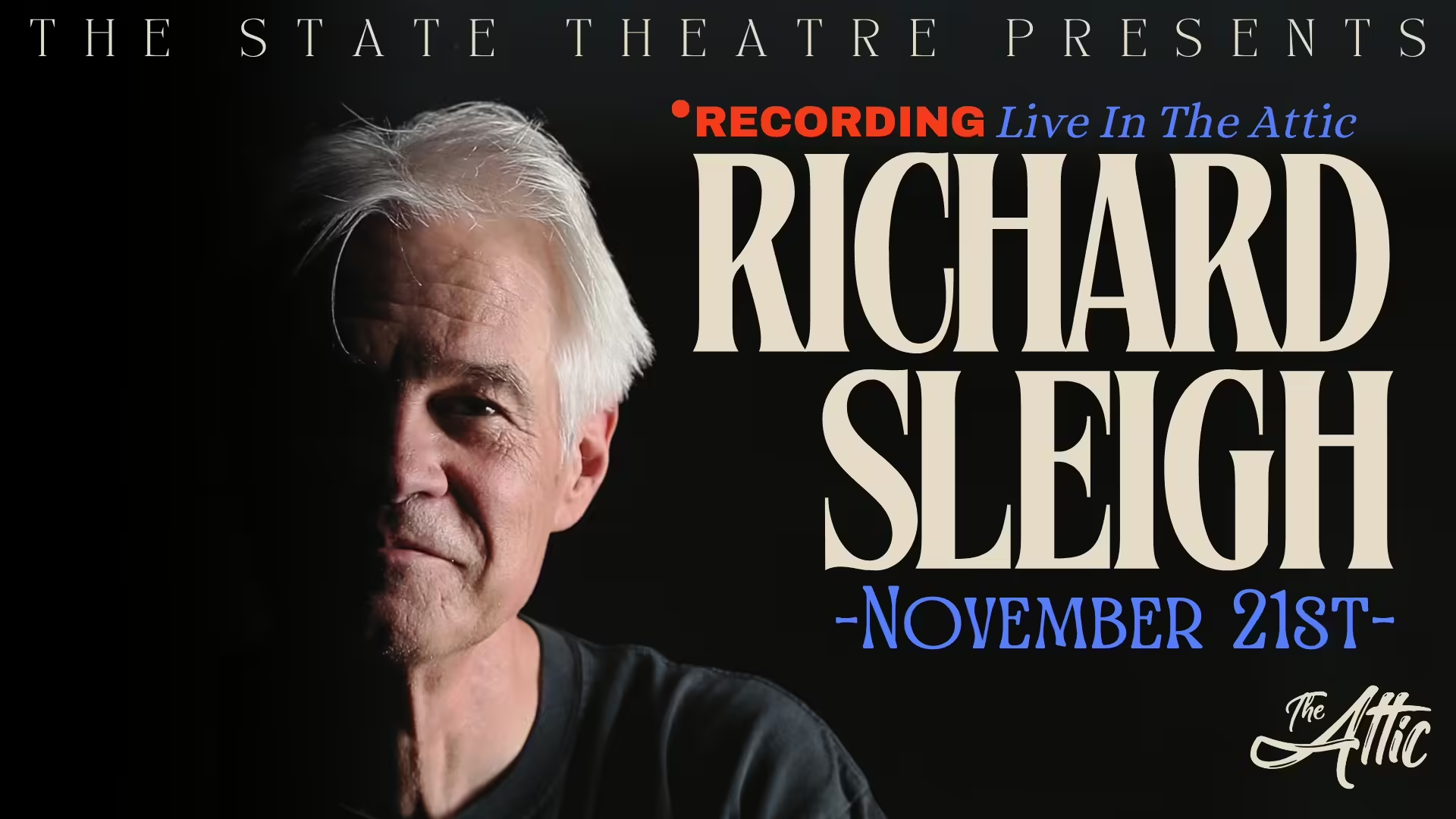

Richard Sleigh
Richard was born in Philipsburg, a coal mining town in Central Pennsylvania. He first heard the sounds of the Marine Band harmonica as a kid through the music of his great-uncle Bill, who played steam train imitations and songs like “The Irish Washerwoman” to crowds on street corners in his home town.
Richard started playing guitar at age 8 and added rack harmonica later on as he chased the sounds of Bob Dylan and the Beatles. At age 17, he heard Sonny Terry and Woody Guthrie’s recording of “Lost John” which blew his mind with the sonic possibilities of the harmonica.
Richard studied printmaking and drawing at Pennsylvania State University in the early seventies. A study abroad semester in London turned into a year of traveling on bicycle through Greece, Europe, Wales and Ireland with a full set of Marine Bands, a 270 Chromatic and a pennywhistle as constant companions. Music was a great way to meet people and also make some extra cash busking on street corners.
The mystery of bending notes on the blues harp challenged Richard for years until he ended up at a banquet table at the 1984 SPAH convention where Cham-ber Huang explained the mechanics of note bending on chromatic and diatonic harmonicas.
Armed with this insight, Richard went home and started sketching ways to make a harmonica with “primary and secondary reeds”. He hit on a way to do it, and then spent the next ten years making prototypes and learning how to write a patent. In the process he started meeting all sorts of characters in the harmonica world like Pierre Beauregard, Magic Dick, Richard Farrell, Dick Gardner, and others who helped him learn ways to tune and adjust harmonica reeds. In 1993 Richard started hearing about a guy in Joliet Illinois named Joe Filisko. Convincing Joe to take a look at his invention, Richard took a train from Philadelphia to Joliet with a cigar box full of harmonica prototypes.
It turned out that others, including Will Scarlett, Brendan Power, and Rick Epping all had been pursuing the same basic idea that flashed into Richards head after his first SPAH convention. Rick Epping successfully filed for a patent on a harmonica that used “enabler reeds” that eventually came out as the XB-40.
One of the side effects of chasing the dream of ultimate bending diatonic harmonica was a deeper appreciation for the simplicity and power of the Marine Band harmonica. Another was a working relationship with Joe Filisko. When Joe burst onto the harmonica scene with his radical all brass custom harmonicas, he quickly became swamped with demand for customized harmonicas.
Joe offered to teach Richard his process of repairing and improving harmonicas and Richard jumped in with both feet. Over the next few years, Joe and Richard stayed in constant contact and conducted hundreds of experiments on how to extract the best response and tone out of a set of reed plates, a process that came to be known as the “Filisko Method”. James Gordon joined forces with Joe and Richard later on and also contributed to the development of the Filisko Method. Richard has continued to make incremental improvements in his process of upgrading harmonicas, including designing and developing a line of specialized tools for harmonica technicians.
As a musician, Richard has played on stage with Bo Diddley, Taj Mahal, the Bridgeton Symphony Orchestra, The Wooster Symphony Orchestra and many others. He has also created music for theatre productions, movie soundtracks, and numerous recording sessions. He performs on vocals, guitar and harmonica as a solo act with an eclectic variety of material he calls American Roots Music. On any given night it could include Chicago and Delta Blues, Celtic Music, songs by Hank Williams, Jimmy Reed, Little Walter, Rice Miller, Van Morrison, and Tom Waits.
Building custom harmonicas, teaching and playing harmonica has been Richard’s primary occupation since 1994. Before this time, he had a wide variety of jobs to supplement his music income including sign painter, graphic designer, towboat deckhand on the Monongahela River, and job coach in a social service agency.
Richard lives now in Boalsburg Pennsylvania with his wife Jane. They have two daughters making their way out into the world. They also have one apparently indestructible orange cat named Ginger.
Richard’s mission in life is to be the best musician he can be and to inspire and help others to do the same. His customized Hohner harmonicas have been inspiring people to higher levels of expression for over two decades, according to countless letters of thanks from his loyal customers.
Related Events


A Tale of Two

Spafford

